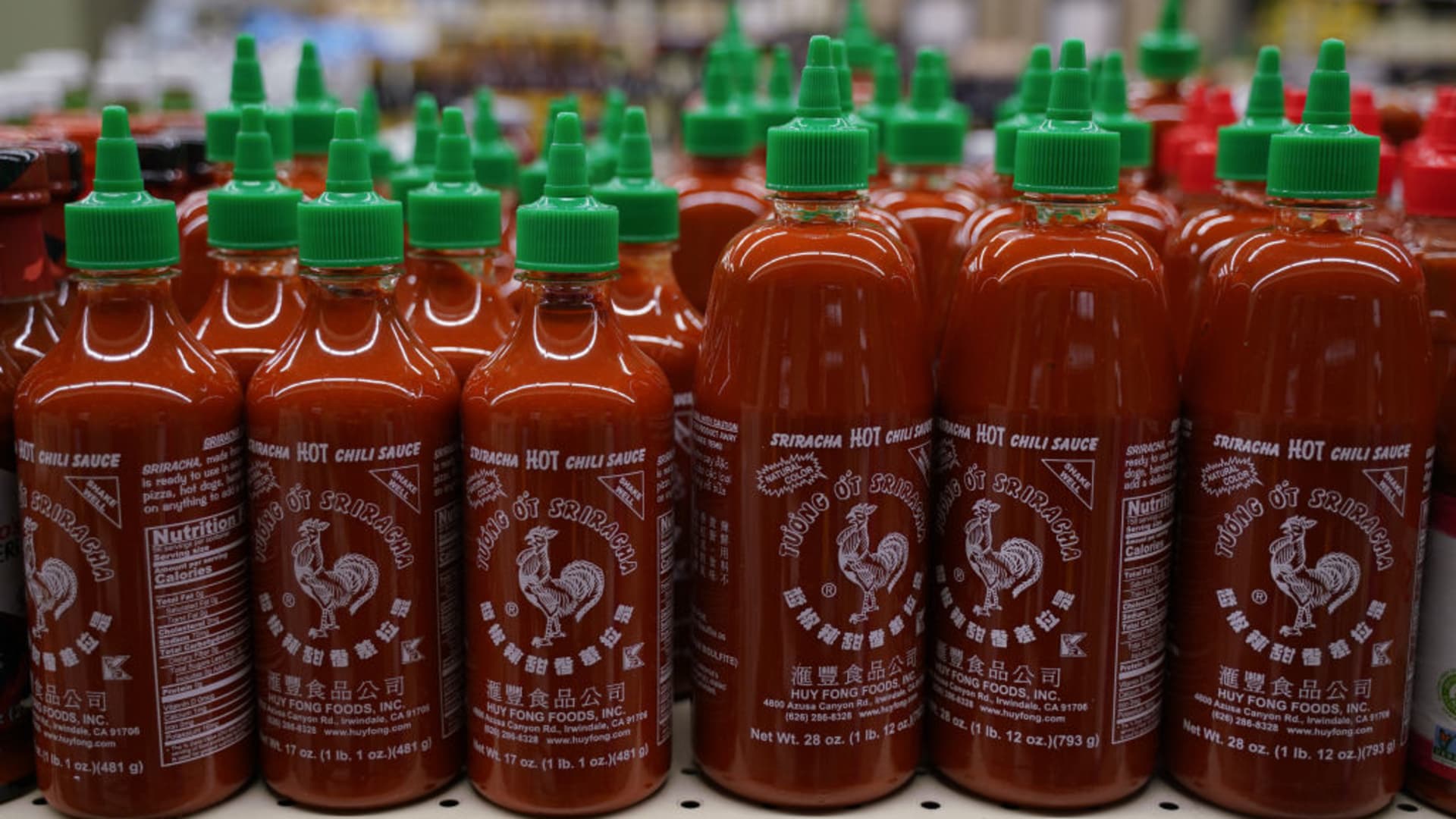Huy Fong Foods’ sriracha hot sauce, in the green-capped bottle with the rooster label, has been hard to find for the past few years.
In July 2020, the company sent an email to customers saying it was experiencing a shortage of the jalapeño chili peppers that are a main ingredient of the sauce. In April 2022, it reiterated the problem in a statement to customers.
But it hasn’t solved the problem yet — leaving consumers seeking alternatives to the popular hot sauce.
Strained supplier relations coupled with adverse agricultural conditions have left Huy Fong Foods’ sriracha out of stock at many grocers nationwide. Bottles of the hot sauce were going for as much as $52 on third-party sellers such as Amazon as of Thursday.
Underwood Ranches, a farm owned by Craig Underwood based in Ventura County, California, supplied Huy Fong Foods’ peppers for 28 years. Underwood told CNBC that he could have kept up with demand if he were still the company’s supplier.
After a dispute between the two parties led to a legal battle that began in 2017, the long-term relationship between the manufacturer and supplier ended.
Huy Fong Foods claimed it overpaid Underwood Ranches for its crops from the 2016 season.
“We had been investing in the next year’s crop and crop beyond. So we felt that was really our money. But [Huy Fong founder David Tran] decided to sue us for that. And when he did, we countersued,” said Underwood.
Meanwhile, the company began contracting with new farmers, even though it already had made an agreement with Underwood Ranches for its 2017 crop supply.
“In the end, Craig Underwood won a $23 million judgment from a jury that was in Ventura County, in his backyard. But he also had to pay David Tran back the $1.5 million that Huy Fong says they overpaid,” said CNBC special correspondent Jane Wells, who covered agriculture in California.
Huy Fong Foods declined CNBC’s request for an interview.
Today, Huy Fong Foods reportedly sources its peppers from farms in California, New Mexico and Mexico. But over the past few years, much of the region has suffered drought and poor weather conditions, which have damaged crops.
While Underwood said he has been producing good pepper yields over the past few years, climate conditions vary considerably in the southwestern region of North America.
“I believe that’s one of the reasons that the relationship with Underwood kind of broke down — it sounds like the processing plant felt they could get cheaper jalapeños on the fresh open market,” said Stephanie Walker, extension vegetable specialist at New Mexico State University. “And in some years, if jalapeños are in abundant supply, you might get away with that. But in years that jalapeños and other fresh crops are in short supply, it’s impossible.”
Watch this video to learn more.
This story originally appeared on CNBC

